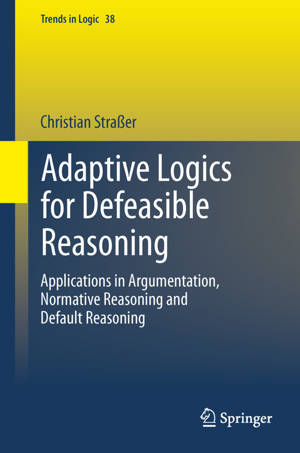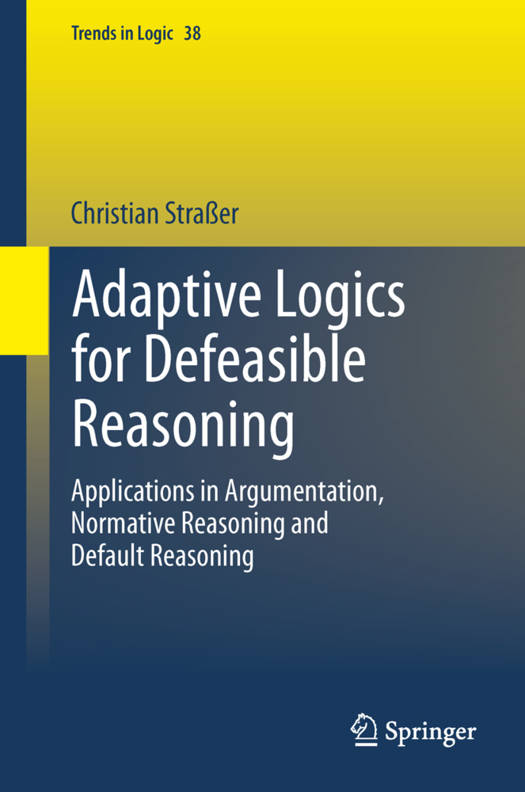
- Retrait gratuit dans votre magasin Club
- 7.000.000 titres dans notre catalogue
- Payer en toute sécurité
- Toujours un magasin près de chez vous
- Retrait gratuit dans votre magasin Club
- 7.000.0000 titres dans notre catalogue
- Payer en toute sécurité
- Toujours un magasin près de chez vous
Adaptive Logics for Defeasible Reasoning
Applications in Argumentation, Normative Reasoning and Default Reasoning
Christian StraßerDescription
This book presents adaptive logics as an intuitive and powerful framework for modeling defeasible reasoning. It examines various contexts in which defeasible reasoning is useful and offers a compact introduction into adaptive logics.
The author first familiarizes readers with defeasible reasoning, the adaptive logics framework, combinations of adaptive logics, and a range of useful meta-theoretic properties. He then offers a systematic study of adaptive logics based on various applications.
The book presents formal models for defeasible reasoning stemming from different contexts, such as default reasoning, argumentation, and normative reasoning. It highlights various meta-theoretic advantages of adaptive logics over other logics or logical frameworks that model defeasible reasoning. In this way the book substantiates the status of adaptive logics as a generic formal framework for defeasible reasoning.
Spécifications
Parties prenantes
- Auteur(s) :
- Editeur:
Contenu
- Nombre de pages :
- 438
- Langue:
- Anglais
- Collection :
- Tome:
- n° 38
Caractéristiques
- EAN:
- 9783319007915
- Date de parution :
- 13-12-13
- Format:
- Livre relié
- Format numérique:
- Genaaid
- Dimensions :
- 156 mm x 234 mm
- Poids :
- 811 g

Les avis
Nous publions uniquement les avis qui respectent les conditions requises. Consultez nos conditions pour les avis.






